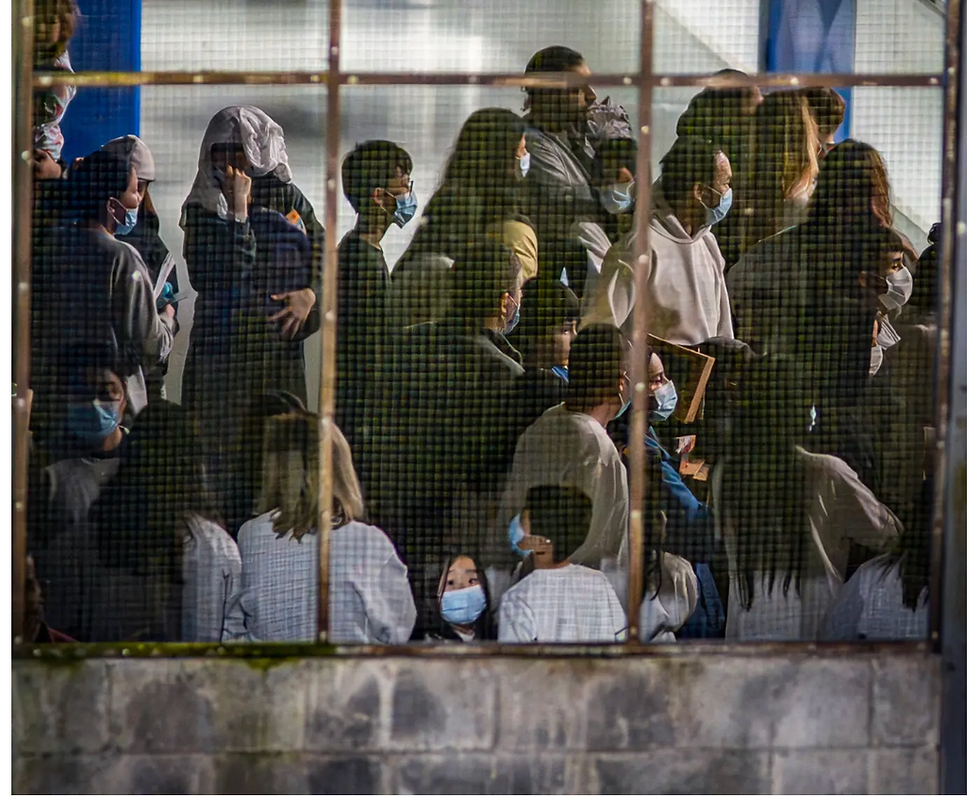Legal Victory for the Woman, Life, Freedom Movement in the Mahmoudzadeh Case
- Herischi Law
- Apr 29, 2025
- 3 min read

On March 6, 2023, Shiwa Nahadi, Tara Mahmoudzadeh, and the Estate of Omer Mahmoudzadeh filed a lawsuit under the Foreign Sovereign Immunities Act (FSIA) in the District of Columbia against the Islamic Republic of Iran and the Islamic Revolutionary Guard Corps (IRGC). The case addressed the extrajudicial killing of Omer Mahmoudzadeh, a U.S. citizen and humanitarian aid worker, during Iran’s missile and drone attack on Kurdish refugee camps in Koysinjaq, Iraq, on September 28, 2022. The attack, documented as involving 70 ballistic missiles and suicide drones, claimed 13 lives, including Mahmoudzadeh’s, and injured over 50 people, including 20 children. On April 25, 2025, the court issued a ruling holding Iran liable for the killing and awarded the plaintiffs $166 million in damages. This legal triumph not only delivered justice for the Mahmoudzadeh family but also sent a powerful message in support of the “Woman, Life, Freedom” movement.
The case proceeded under the FSIA, which allows victims of state-sponsored terrorism to seek justice in U.S. courts. Court documents established that Iran has been designated a state sponsor of terrorism since 1984, and the Koysinjaq attack was condemned as a terrorist act and a violation of Iraq’s sovereignty. Witness testimonies, such as that of Karim Farkhapur from the Kurdistan Democratic Party of Iran, alongside international reports, including statements from the United Nations and the U.S. State Department, confirmed the attack was deliberate and lacked military justification. The court, citing this evidence, deemed Mahmoudzadeh’s death an “extrajudicial killing” under the Torture Victim Protection Act (TVPA). This ruling underscores the court’s commitment to holding Iran accountable for human rights violations, particularly during a period of intensified suppression of Kurdish protesters amid the “Woman, Life, Freedom” movement.
The connection to the “Woman, Life, Freedom” movement is evident in the attack’s context. Court records indicate that Iran’s assault on Koysinjaq was a response to the Kurdistan Democratic Party of Iran’s support for protests sparked by Mahsa Amini’s death in 2022. The movement, advocating for women’s rights, freedom of expression, and social justice, faced severe repression, with the attack on Kurdish refugees in Iraq forming part of this broader crackdown. Omer Mahmoudzadeh, who served as a healthcare coordinator in the refugee camps, embodied humanitarian resistance against oppression. The legal victory of his family in this case lends legitimacy to the “Woman, Life, Freedom” movement, demonstrating that Iran’s actions, even beyond its borders, can be condemned in international courts.
The court awarded Shiwa Nahadi, Mahmoudzadeh’s wife, $10 million for emotional distress and loss of companionship, Tara Mahmoudzadeh, his daughter, $5 million for similar damages, and the Estate of Omer Mahmoudzadeh $1 million for his pain and suffering before death. Additionally, $150 million in punitive damages was granted to deter future actions by Iran. These awards not only compensate the family’s losses but also signal to Iran that its terrorist acts will face consequences. The punitive damages, in particular, target Iran’s drone program, which court documents describe as a threat to regional and global stability.
This ruling marks a significant step toward justice for victims of Iran’s repression and strengthens the “Woman, Life, Freedom” movement. By condemning Iran’s actions in an international court, the case shows that the global community can hold the regime accountable for human rights abuses and terrorist acts. For activists in the movement, this victory provides motivation to continue their fight for freedom and justice. The Mahmoudzadeh family, represented by Ali Herischi, honored Omer’s memory and became a voice for thousands suffering under Iran’s oppression. Beyond a legal win, this ruling stands as a symbol of hope and resistance for a freer future in Iran.





Comments